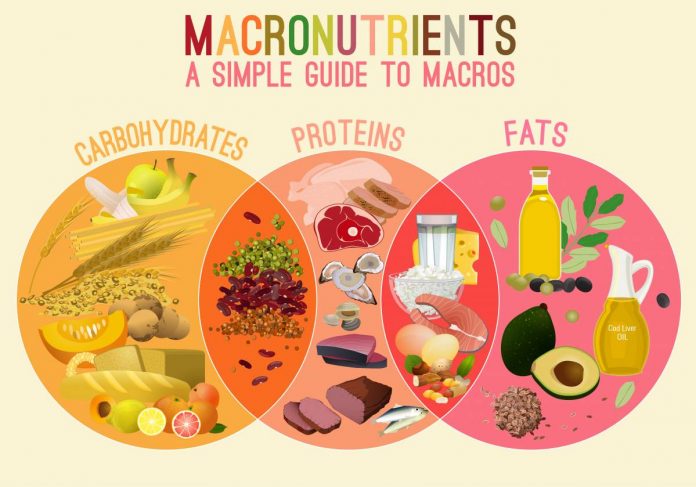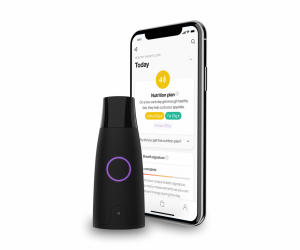
Did you know that only one in eight Americans is in optimal metabolic health? Metabolic health may be a term that’s new to you. Or maybe you think you know what it means…sorta. We’re here to fill you in on what you need to know about metabolic health: what it is, why it’s important, how to improve it, and why you would want to.
What is metabolic health?
The definition of metabolic health includes the following items: ideal levels of blood glucose, triglycerides, blood pressure, high-density lipoprotein (HDL), and waist circumference, without the use of any medications. All of the risk factors mentioned are directly associated with an individual’s risk for diabetes, stroke, and heart disease.
At the core of metabolic health is metabolism.
What is metabolism?
Let’s start with some basics: metabolism, which is the sum of the chemical reactions performed by the body’s cells that transform food into energy. Certain proteins regulate these chemical reactions, thousands of which occur simultaneously.
The main precursor for energy is glucose (sugar). Therefore it’s necessary to keep a close eye on glucose levels if metabolism is going to work effectively.
Metabolic health is the phrase used to describe how well metabolism is working, that is how efficiently your body switches from using glucose or fat for energy. If you make wise food choices that allow your glucose levels to stay steady and within a healthy range, then you have taken a good step toward achieving optimal metabolic health.
Why is optimal metabolic health important?
Poor metabolic health has been associated with a number of serious diseases and illnesses as well as symptoms that you may not associate with metabolic health. In addition to the cardiovascular and diabetes risks already mentioned, individuals whose metabolic health is compromised can experience obesity, non-alcoholic fatty liver disease, Alzheimer’s disease, and chronic kidney disease.
At a different level, poor metabolic health may appear as fatigue, anxiety, depression, brain fog, erectile dysfunction, acne, chronic pain, increased appetite, hair loss, poor exercise endurance, a greater risk for chronic disease, and more. In fact, metabolic dysfunction is at the foundation of most chronic diseases.
On the other hand, if you take steps to improve your metabolic health, you can hope to enjoy better energy, memory, exercise endurance, fat burning, skin, fertility, immune function, and sexual health, as well as a lower risk of chronic diseases.
Read about what everyone should know about blood sugar
What’s the role of glucose in metabolic health?
Glucose plays a huge role. This simple sugar is the result of the breakdown of carbs that you eat. When glucose enters the bloodstream, it messages the pancreas to release insulin, which then tells cells to absorb glucose. The mitochondria (energy organelles in cells) use glucose to make energy, while extra glucose is stored in muscle or the liver or it is converted to triglycerides and saved up in fat cells.
If your body gets too much glucose over time, it can lead to many health issues, such as high insulin, which can eventually become insulin resistance and interfere with the breakdown of stored fat. Excess glucose in the blood is also associated with inflammation, oxidative stress (free radical damage to your cells), and glycation (glucose sticks to proteins such as collagen and can cause high blood pressure).
Basically, having too much glucose and not controlling your glucose well is a recipe for the development of serious and common chronic diseases. Diabetes, heart disease, dementia, infertility, obesity, stroke, and many more are metabolic health-related diseases.
What is metabolic flexibility?
Here’s another term that’s important to know: metabolic flexibility, which is “the ability to respond or adapt to conditional changes in metabolic demand.” People who are metabolically flexible have a body that can quickly adapt to burn the food they eat. If they eat fat, the body burns fat; if they eat carbs, the body burns carbs. When they fast, the body continues to burn fat for energy.
However, if you are metabolically inflexible, your body can’t make those switches easily. In the short term, the consequences can include energy crashes midday, feeling sleepy after eating, being overweight, and anxiety.
In the longer term, the result is high blood glucose levels and then insulin resistance, which then can lead to higher risks of high blood pressure, high cholesterol, obesity, and type 2 diabetes. Metabolic inflexibility also causes the mitochondria to produce more free radicals, which in turn can result in other serious illnesses such as cardiovascular disease.
One effective way to improve metabolic flexibility is following intermittent fasting. This involves fasting for a set number of hours per day and limiting your food intake to a specific time span as well. A 16/8 program (16-hours fasting, 8-hour window for eating) is among the most common. Even starting with a 12/12 program can make changes in how your body uses its available energy stores. Following a 14/10 or 18/6 program or fasting a full day several times a week are a few other options.
Intermittent fasting can help improve insulin resistance, reduce cholesterol and oxidative stress, fight inflammation, and maintain lean muscle.
Read about supporting heart health for life
How can you improve metabolic health?
You can improve your metabolic health by making lifestyle changes and watching your glucose levels. For example:
- Watch your sugar intake. Americans consume nearly ten times more sugar daily than they did 100 years ago. Sugar is in many processed foods, so read labels carefully before buying or cut back on the processed foods you consume.
- Increase your fiber intake. Fiber will leave you feeling full longer and is used to calculate net carbs in your diet. For example, if a food has 6 grams of sugar and 5 grams of fiber it only counts as 1 gram of carbs. If you aren't getting enough fiber from your diet, try a supplement like Fiberus.
- Focus on whole foods. Fresh or frozen fruits and vegetables, whole grains, nuts, seeds, organic/pasture-fed/free-range meat and eggs, and healthy fats such as olive and avocado oils are best. Avoid processed foods.
- Move. Daily exercise supports metabolic health. A mixture of aerobic and strength training provides the most benefit. Research shows that exercise improves glycemic control and insulin sensitivity.
- Sleep. Insufficient sleep interferes with processing energy. Get at least 7 to 8 hours nightly. Experts note that even one night of insufficient sleep can have an impact on insulin resistance.
- Avoid environmental and synthetic toxins. Although it’s impossible to completely stay away from these poisons, which impair the mitochondria and impact metabolism, you can reduce exposure by avoiding food additives, using all-natural health care and household cleaning products, not dry cleaning your clothes, using glass or stainless steel food containers instead of plastic, never using plastic in your microwave, only using stainless steel or ceramic water bottles (no plastic), and avoiding all secondhand smoke.
- Change eating times. Snacking throughout the day and eating late at night can boost insulin and thus interfere with fat burning for energy and bedtime snacks interfere with sleep.
- Manage stress. Psychological stress has a negative impact on the function of the mitochondria and their ability to produce energy. Chronic stress also allows excess glucose to accumulate in the body. Adopt ways to manage your stress on a daily basis, such as meditation, yoga, deep breathing, listening to soothing music, tai chi, visualization, or anything you find enjoyable.
- Monitor your blood glucose. This task isn’t just for people with diabetes. For optimal metabolic health, everyone should monitor their blood sugar levels to see how it responds to your lifestyle and diet. The best way to accomplish this is by using a continuous glucose monitor (CGM). By using a CGM, you can track changes in your glucose levels, make dietary and lifestyle changes based on the readings from the CGM, see how your body responds to what you eat and drink, exercise, stress, and sleep, and thus take better control of your metabolic health.
- Hack your metabolism. Did you know that when your body is burning carbs you will produce more CO2? By monitoring your CO2 levels throughout the day you can learn more about your individual metabolism and how to improve your metabolic flexibility. So how do you measure something like CO2 output? This used to be an expensive procedure that only was available to elite athletes. Now, Lumen makes a small device anyone can use to hack their metabolism.
My Experience With Lumen
I have been using a Lumen device to track my metabolism for about a month now. I have always had a sweet tooth and love my carbs. What I am learning is that by timing my carbs earlier in the day and fasting for at least 12 hours at night, I have more energy during the day and I am sleeping better at night. It’s so easy to use, you breathe into the Lumen when you wake in the morning, before and after you eat, before and after exercise, and at the end of the day to see how the carb servings you ate during the day impacted your levels. At the end of the first two weeks, you receive your Lumen Flex score and I am happy to report mine has risen almost 32% since I started.
Recently, Lumen also added food logging into their app to help you track your macronutrients (carbs, fat, and protein) throughout the day and see how they affect your score.
I am working towards a better flex score and moving into a fat-burning mode more but at least now I have an easy-to-use tool to track my progress.
[Editor's Note: Right now you can save $50 off a Lumen. Use the code ANDREANS at checkout.]
Bottom line
Everyone can improve their metabolic health, but it takes practice and dedication. Fortunately, the main factors involved in poor metabolic health are modifiable. Adopt healthy lifestyle habits every day and optimal metabolic health could be just around the corner.
Disclosure: This post contains affiliate links.







